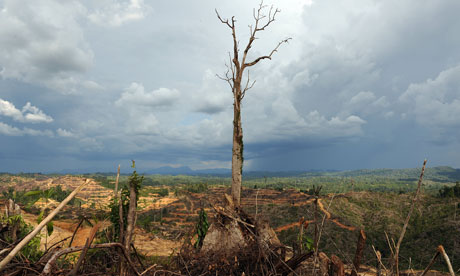While Malaysia has enjoyed impressive rates of economic growth over the last forty years, there has been substantial, irreparable and avoidable loss of her natural capital. Recognised as one of twelve countries blessed with mega biodiversity, Malaysia has difficulty securing her remaining wildlife. If forest cover is about 60 %, it is thanks to the Food and Agriculture Organisation’s (FAO) generous definition of a ‘forest’– land with at least 10 % of tree crown cover and which can include forestry-type plantations such as rubber wood. Malaysia’s forests, degraded by logging, replaced by plantations – oil palm or latex timber clones, fragmented by roads, and raided frequently by poachers hired by syndicates, harbour alarmingly declining numbers of wildlife. In the International Union for the Conservation of Nature’s Red List (IUCN Red List), Malaysia has the world’s third highest number of plants and animals threatened with extinction. The list warns of the disappearance of the tiger, sambar deer, rhinoceros, elephant, tapir, sunbear, pangolin, orangutan, hawksbill and leatherback turtles, among others, if business-as-usual continues, and it does. In a trade powered by demand from China, Vietnam and Thailand, Malaysia has emerged as a major hub in the smuggling of wildlife and wildlife products. To stop the demand and the trade, Malaysia needs help.
High conservation value lowland forests have been all but lost to plantations and urban development. More forests and habitats are being lost to oil palm, latex timber clones and mega projects to supply energy or water, phenomena mostly driven by top down decision-makers working in concert and non-transparently with private sector players. In this regard, Chief Minister of Sarawak Abdul Taib Mahmud’s headlong conversion of peat swamp forests to oil palm, embarking on the “necklace” of twelve hydro-electric mega projects and concessions for high-impact logging (to clear the way for plantations), all of which simultaneously dispossess native people of their customary lands, show naked abandon. The judiciary and mainstream media do not enjoy sufficient autonomy to fulfil their check-and-balance roles. To stop Abdul Taib Mahmud, Malaysia needs help.
Meanwhile, Malaysian logging and oil palm companies take their plunder-for-profit expertise to countries around the world bringing little or no benefit to local communities, and sometimes misery. It would be useful to compile a list of such companies for worldwide reference. To reform these companies, Malaysia needs help.
Domestic sewage, waste from livestock and farms, discharges from agro-based and other industries, silt from earthworks and logging roads, and leachate from dumps pollute rivers and inland waters. Marine waters are similarly affected. Clearing of mangroves, overfishing, diving and snorkelling hasten the loss of coral reefs beyond the bleaching induced by warmer seas. Trawlers equipped with nets hundreds of metres long fish illegally in coastal waters. Our fish stock has declined by 90 % since the seventies. To save Malaysia’s corals and fish, Malaysia needs help.
The quality of the urban environment comes closer to first world standards than to third world squalor. Foreign workers collect and dispose garbage, sweep drains and retrieve leaf and litter from public areas, providing a priceless service to Malaysians. There are intermittent periods of haze caused by distant forest clearing but air quality is generally acceptable, thanks in good measure to abundant rain from the heavens. Urban green lungs, essential for air quality as well as for aesthetics and spiritual well-being survive in ever-diminishing pockets in the face of ever-present pressures from pesky developers and a surging population. Spatial planning, not defined by urban intensification, has given way to urban sprawl and a confusing tangle of tolled highways. If public transportation infrastructure is second rate, it serves as a life support to the local car industry by putting record numbers of cars on the road.
Fauna and flora, land and water, suffer dearly from slack enforcement of existing regulations. Still, many problems begin ‘upstream’. Decision-making favouring runaway economic development reflects little or no appreciation of ecosystems and the value of sustaining their services. Poor coordination and non-interaction among too many government agencies vested with bits of authority result in economic planning decisions that compromise environmental values. Much of this is facilitated by a public and leaders in all walks of life who choose to remain largely unaware of a vanishing paradise. To inform and engage them, Malaysia needs help.
Oh! Yes, indeed. Malaysia needs help — big time.
JC Tansen is an environmental advocate and consultant in Malaysia.
Photo from The Guardian.
 Facebook
Facebook  Twitter
Twitter  Soundcloud
Soundcloud  Youtube
Youtube  Rss
Rss 